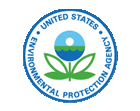
| Safe Drinking Water Act (SDWA) | ||

|
|
|||||||||
|
Basic InformationThe Safe Drinking Water Act (SDWA) was originally passed by Congress in 1974 to protect public health by regulating the nation's public drinking water supply. The law was amended in 1986 and 1996 and requires many actions to protect drinking water and its sources: rivers, lakes, reservoirs, springs, and ground water wells. (SDWA does not regulate private wells which serve fewer than 25 individuals.) For more information see: SDWA authorizes the United States Environmental Protection Agency (US EPA) to set national health-based standards for drinking water to protect against both naturally-occurring and man-made contaminants that may be found in drinking water. US EPA, states, and water systems then work together to make sure that these standards are met. Millions of Americans receive high quality drinking water every day from their public water systems, (which may be publicly or privately owned). Nonetheless, drinking water safety cannot be taken for granted. There are a number of threats to drinking water: improperly disposed of chemicals; animal wastes; pesticides; human wastes; wastes injected deep underground; and naturally-occurring substances can all contaminate drinking water. Likewise, drinking water that is not properly treated or disinfected, or which travels through an improperly maintained distribution system, may also pose a health risk. Originally, SDWA focused primarily on treatment as the means of providing safe drinking water at the tap. The 1996 amendments greatly enhanced the existing law by recognizing source water protection, operator training, funding for water system improvements, and public information as important components of safe drinking water. This approach ensures the quality of drinking water by protecting it from source to tap. SDWA applies to every public water system in the United States. There are currently more than 160,000 public water systems providing water to almost all Americans at some time in their lives.
Fact Sheets - The following fact sheets were created in commemoration of the anniversary.
|
|
|
||
|
|